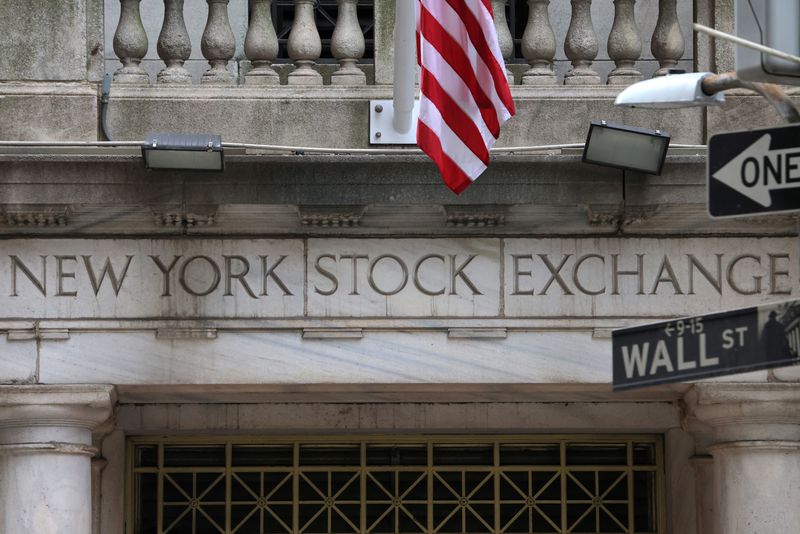By Lewis Krauskopf
NEW YORK (Reuters) - Some U.S. investors are looking abroad to capture better stock returns in the coming months, betting European and other international stocks hold more enticing valuations after a long period of U.S. dominance.
U.S. stocks have rebounded to start the year after a rough 2022, but still have lagged their international counterparts. Europe's STOXX 600 index has gained some 17% since the end of the third quarter, versus 11% for the U.S. benchmark S&P 500. MSCI's gauge of global stocks excluding the U.S. has risen more than 20% over that time.
European stocks have benefited as a mild winter has so far helped the region avert a feared energy crisis, investors said. Moderating commodity prices have helped, as has the re-opening of China's economy and a weaker dollar; some expect the strength to continue.
“Relatively speaking, we have got more money now chasing better opportunities outside the U.S., which was not the case the last several years,” said Martin Schulz, head of the international equity group at Federated Hermes (NYSE:FHI).
Federated Hermes said this week it is shifting from a “modestly bearish” view on stocks to a “modestly positive” one, entirely by adding to international markets.
U.S. stocks have long held sway over international peers. The S&P 500 rose over 460% from lows during the great financial crisis in March 2009 through last year, compared with a 170% gain for Europe's STOXX over that time.
That period largely coincided with rock-bottom interest rates, a backdrop that favored U.S. stock indexes which are far more heavily weighted in technology shares than stock gauges in Europe. The tech sector amounts to 26% of the S&P 500. The group is only about 7% in the STOXX 600, which is far more heavily geared toward financial and industrial shares.
But the playing field leveled dramatically over the last year, as central banks globally raised interest rates to fight inflation. Higher rates tend to particularly pressure the valuations of tech and other high growth stocks while potentially benefiting banks and other value shares heavily weighted in Europe.
"One of the secular elements that has helped U.S. equities was unconventional monetary policies, and those have come to an end," said Alessio de Longis, senior portfolio manager for Invesco Investment Solutions in New York.
The firm last month rotated more into international equities as it increased its overall stock exposure, de Longis said.
GRAPHIC: US vs European stocks (https://fingfx.thomsonreuters.com/gfx/mkt/movakjqeqva/Pasted%20image%201673634725531.png)
International stocks were recently touted by investor Jeffrey Gundlach of DoubleLine Capital and BofA Global Research, which projected global stocks would "crush" their U.S peers in 2023.
Even with their recent strength, Europe's STOXX still trades at a hefty discount, with a forward price-to-earnings ratio of 12 against a P/E of about 17 for the S&P 500, according to Refinitiv Datastream. That valuation gap is close to its widest ever and is over twice its historic average.
“Every single metric that you can follow from a valuation perspective shows that international stocks are historically cheap versus the U.S.,” said Brent Schutte, chief investment officer at Northwestern (NASDAQ:NWE) Mutual Wealth Management Company.

Another lift for international stocks has come from the recent weakness in the dollar, which is down some 9% since the end of the third quarter after a huge run. The weaker greenback benefits U.S. investors when they convert foreign profits back into their home currency, and some investors believe the dollar could keep sliding if it appears the Fed is growing closer to pausing its rate increases.
Some investors think U.S. stocks will soon resume their dominance over equities linked to other regions. Since 2012, the United States has tended to outperform rest-of-world equities, with an average difference of 1.7 percentage points over a typical 50-day window, according to Nicholas Colas, co-founder of DataTrek Research. "As much we can see the merits of lower valuation non-U.S. equity markets, their recent outperformance says investors should be cautious in chasing the recent rally," Colas said in a note this week. A widely expected global recession could be one factor that sends investors back into U.S. stocks, which many see as a relative haven during times of economic uncertainty, investors said. Buying international stocks could be a "complement" to the opportunity domestically, said Mona Mahajan, senior investment strategist at Edward Jones. "The U.S. markets haven’t yet rebounded as much and so I think there is still a fundamental opportunity in the U.S. to play some catch up there,” Mahajan said.